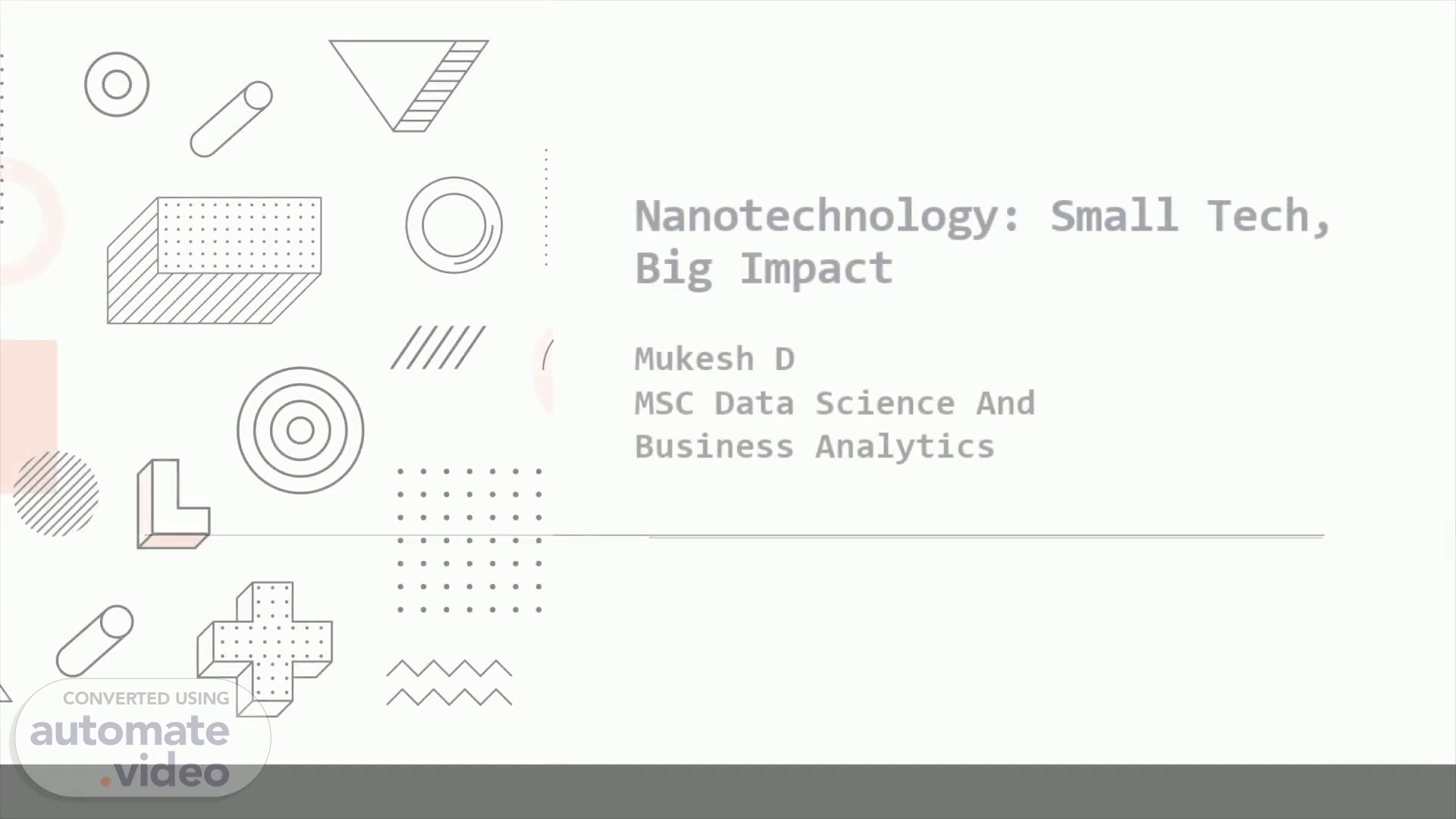
Nanotechnology: Small Tech, Big Impact
Scene 1 (0s)
[Audio] Nanotechnology: Small Tech, Big Impact Mukesh D MSC Data Science And Business Analytics.
Scene 2 (10s)
[Audio] INTRODUCTION Nanotechnology involves the manipulation of matter at the nanoscale, typically less than 100 nanometers It encompasses various scientific disciplines and applications The concept of nanotechnology has its roots in a famous 1959 lecture by physicist Richard Feynman.
Scene 3 (28s)
[Audio] The Nanoscale World The nanoscale is incredibly small, allowing us to work with individual atoms and molecules Properties at this scale differ from bulk materials, leading to unique behaviors and applications Quantum effects become significant, enabling quantum dots, for example.
Scene 4 (50s)
[Audio] Key Principles of Nanotechnology Nanotechnology relies on two fundamental approaches: Bottom-up and Top-down Bottom-up methods involve building nanoscale structures from individual atoms and molecules Top-down methods involve miniaturization from larger structures Self-assembly is a crucial principle where nanoscale components arrange themselves.
Scene 5 (1m 18s)
[Audio] Nanomaterials Nanomaterials include nanoparticles, nanotubes, and more They exhibit remarkable properties like increased strength, reactivity, and electrical conductivity Applications range from advanced coatings to medicine and electronics.
Scene 6 (1m 38s)
[Audio] Nanotechnology in Electronics Nanotechnology enables the miniaturization of electronic components Nanoscale transistors are critical for faster, more efficient computing Quantum computing, based on quantum bits or qubits, is a groundbreaking application.
Scene 7 (1m 58s)
[Audio] Nanotechnology in Medicine Nanotechnology revolutionizes medicine through targeted drug delivery Nanoparticles can deliver drugs directly to diseased cells while sparing healthy ones Imaging and diagnostics also benefit from nanoscale materials.
Scene 8 (2m 17s)
[Audio] Environmental Applications Nanotechnology aids in environmental protection Nanomaterials are used in water purification systems Solar cells with nanotechnology enhancements are more efficient Nanoparticles can remove pollutants from soil and water.
Scene 9 (2m 38s)
[Audio] Ethical and Safety Considerations Nanotechnology presents ethical concerns Environmental impact: Release of nanomaterials may harm ecosystems Health risks: Safety concerns arise from exposure to nanoparticles Responsible use and regulation are essential.
Scene 10 (3m 3s)
[Audio] Future of Nanotechnology Ongoing research and innovations continue to expand nanotechnology's horizons Potential breakthroughs include advanced drug delivery, energy storage, and more Societal implications, both positive and negative, must be considered.
Scene 11 (3m 20s)
[Audio] Conclusion Nanotechnology holds enormous promise for transforming various industries Its impact on electronics, medicine, and the environment is already evident We must balance innovation with responsible use and ethical considerations.
Scene 12 (3m 39s)
[Audio] THANK YOU. THANK YOU.